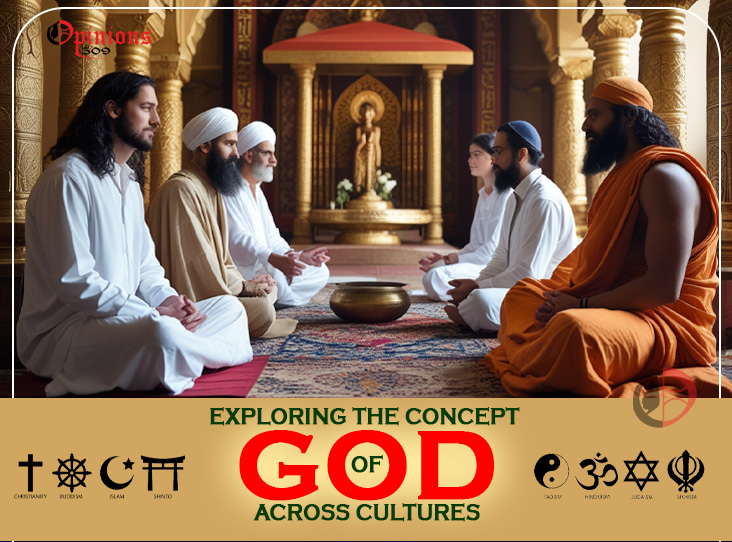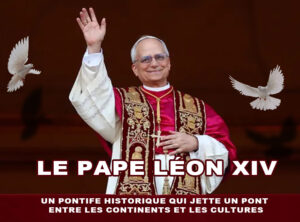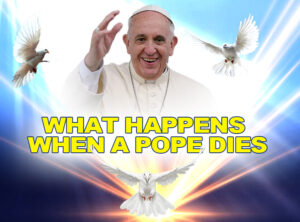The question “Who or what is God?” has been explored for millennia across cultures, religions, and philosophies. There is no single answer, as interpretations vary widely. Below is a structured overview of key perspectives:
Table of Contents
- 0.0.1 1. Religious Perspectives
- 0.0.2 2. Philosophical Perspectives
- 0.0.2.1 2A. Classical Theism and Foundational Arguments
- 0.0.2.2 2B. Critiques and Challenges to Theism
- 0.0.2.3 2C. Modern Reinterpretations of Divinity
- 0.0.2.4 2D. Existential and Phenomenological Approaches
- 0.0.2.5 2E. Analytic Philosophy and Contemporary Debates
- 0.0.2.6 2F. Non-Western Philosophical Views
- 0.0.2.7 2G. Postmodern and Constructivist Perspectives
- 0.0.3 3. Modern/Secular Views
- 0.0.4 4. Personal/Subjective Interpretations
- 0.0.5 Conclusion
- 1 BOOKSHELF
1. Religious Perspectives
- Monotheistic Religions (belief in one God):
- Christianity: God is understood as a Trinity (Father, Son, Holy Spirit)—a singular, omnipotent, omniscient, and loving creator who interacts with humanity, notably through Jesus Christ.
- Islam: God (Allah) is strictly singular, transcendent, and beyond human comprehension, yet merciful and just, as revealed in the Quran through the Prophet Muhammad.
- Judaism: God (Yahweh) is the eternal, unchanging creator who made a covenant with the Israelites, emphasizing law, justice, and ethical monotheism.
- Dharma Religions:
- Hinduism: Diverse views exist, from Brahman (an impersonal, all-pervading cosmic reality) to personal deities like Vishnu, Shiva, or Devi. God may be both immanent and transcendent.
- Sikhism: God (Ik Onkar) is formless, genderless, and accessible through meditation and ethical living.
- Non-Theistic Traditions:
- Buddhism: Generally focuses on enlightenment rather than a creator god. Some traditions venerate divine beings (devas), but these are not central to spiritual goals.
- Indigenous/Animistic Traditions: Often view the divine as immanent in nature, spirits, or ancestors (e.g., African traditional religions, Shinto).
2. Philosophical Perspectives
- Classical Theism: God as an omnipotent, omniscient, omnibenevolent being, often tied to arguments like the cosmological (first cause) or teleological (design) arguments.
- Deism: God as a distant creator who does not intervene in the universe.
- Pantheism: God is equivalent to the universe/nature (e.g., Baruch Spinoza’s “God or Nature”).
- Panentheism: God permeates the universe but also transcends it.
- Agnosticism: The nature/existence of God is unknown or unknowable.
- Atheism: Rejects the existence of any deity.
2A. Classical Theism and Foundational Arguments
Rooted in ancient Greek philosophy and Abrahamic theology, classical theism defines God as a transcendent, omnipotent (all-powerful), omniscient (all-knowing), omnibenevolent (all-good), and omnipresent being. Key arguments include:
- Cosmological Argument:
- Aristotle and Thomas Aquinas argued for an “unmoved mover” or “first cause” to explain the existence of the universe (e.g., Aquinas’ Five Ways).
- Leibniz posed the question: “Why is there something rather than nothing?”, suggesting God as the necessary being.
- Teleological Argument:
- William Paley’s “watchmaker analogy” posits that the universe’s complexity implies a designer (God).
- Critiqued by David Hume, who argued that design could arise from natural processes or multiple creators.
- Ontological Argument:
- Anselm of Canterbury defined God as “that than which nothing greater can be conceived,” arguing existence is inherent to perfection.
- Immanuel Kant rejected this, claiming existence is not a predicate (a quality added to a concept).
2B. Critiques and Challenges to Theism
- Problem of Evil:
- If God is all-powerful and all-good, why does suffering exist? Epicurus’ trilemma: “Is God unable to prevent evil? Unwilling? Then why call him God?”
- Theodicy (defense of God’s goodness): Leibniz argued we live in the “best of all possible worlds”; Alvin Plantinga posits free will as necessary for moral good.
- Logical Positivism:
- A.J. Ayer deemed religious language (e.g., “God exists”) meaningless, as it cannot be empirically verified.
- Nietzsche’s “Death of God”:
- Declared the collapse of divine authority in a secularizing world, urging humanity to create its own meaning.
2C. Modern Reinterpretations of Divinity
- Process Theology (Alfred North Whitehead):
- God is not omnipotent but evolves with the universe, influencing it through persuasion rather than coercion.
- Panentheism (Paul Tillich, Sallie McFague):
- God is in all things but also transcends them (distinct from pantheism’s “God = universe”).
- Feminist Theology:
- Critiques classical theism’s male-centric imagery (e.g., God as “Father”), proposing gender-neutral or maternal metaphors.
2D. Existential and Phenomenological Approaches
- Kierkegaard: Faith requires a “leap” beyond reason; truth is subjective.
- Martin Heidegger: Questioned Being itself, indirectly opening pathways to rethink divinity beyond traditional metaphysics.
- Jean-Paul Sartre: Atheistic existentialism—humans are condemned to freedom, with no divine plan.
2E. Analytic Philosophy and Contemporary Debates
Analytic Theism (Alvin Plantinga, Richard Swinburne):
- Uses logic and probability to defend God’s existence (e.g., Plantinga’s “modal ontological argument”).
- New Atheism (Richard Dawkins, Daniel Dennett):
- Argues belief in God is irrational, unscientific, and harmful to society.
- Simulation Theory:
- Some propose the universe is a simulation, reviving deistic notions of a “Programmer” (though not necessarily a traditional God).
2F. Non-Western Philosophical Views
- Advaita Vedanta (Adi Shankara):
- Brahman (ultimate reality) is non-dual and identical to the self (atman); “God” as personal deity (Ishvara) is a provisional concept.
- Buddhist Philosophy:
- Rejects a creator God but explores transcendent states (e.g., Nirvana) and cosmic Buddhas in Mahayana traditions.
- Daoism:
- The Dao (Way) is an impersonal, natural force governing the cosmos, beyond anthropomorphic gods.
2G. Postmodern and Constructivist Perspectives
- Jacques Derrida: Questioned fixed definitions of God, emphasizing the mystery beyond language.
- John Caputo: “Weak theology” reimagines God as an event of unconditional love, not a supernatural being.
Philosophy treats God not as a settled fact but as a problem to interrogate. From Aristotle to Dawkins, debates revolve around epistemology (how we know), metaphysics (what exists), and ethics (how we live). Whether framed as a necessary being, a moral ideal, or a linguistic construct, the concept of God remains a mirror for humanity’s deepest questions about existence, meaning, and limits.
3. Modern/Secular Views
- Scientific Naturalism: Explains the universe through physical laws, without invoking a deity.
- Existential/Humanist Perspectives: Focus on human agency and ethics rather than divine authority.
- Metaphorical Interpretations: God as a symbol for love, morality, or the mysteries of existence.
4. Personal/Subjective Interpretations
- Mysticism: Direct, experiential connection with the divine (e.g., through meditation, prayer, or ecstatic states).
- Cultural/Individual Beliefs: God may represent hope, justice, or a higher purpose, shaped by personal experiences.
Conclusion
The concept of God is deeply shaped by cultural, historical, philosophical, and individual factors. For some, God is a literal being; for others, a metaphor or abstract principle. Debates about God’s existence and nature remain central to theology, philosophy, and personal spirituality, reflecting humanity’s enduring quest for meaning.
BOOKSHELF
Author
Stay connected for new publications, events, and more.










More Stories
Balancing Security and Individual Freedom Ethically
Le Lien Entre le Mois de Naissance et la Beauté : Mythes, Science et Subjectivité
États-Unis d’Amérique : Passation de pouvoir